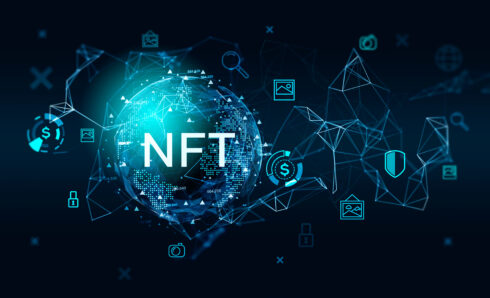SPONSORED
Through a combination of smart contracts and the immutable nature of blockchain technology, people can transfer ownership without relying on traditional assets that are often used for such purposes. Platforms like Bitcoin Prime have a robust algorithm that performs the research for bitcoin traders and makes trading easy. Also, it has helped many beginners to get started with bitcoin trading. The post will examine how NFTs might remove reliance upon traditional assets to streamline and improve supply chain relationships.
It will describe how NFTs can eliminate the need to obtain or use traditionally owned assets when conducting business transactions. It will also explain how NFTs provide a new way to share ownership information and provide complete transparency of digital asset ownership. These new methods will reduce dependence on traditional assets in digital form, which essentially allows any competent shipper to share responsibility for moving goods between two different parties regardless of their geographical location.
What are NFTs?
NFTs are often considered digital assets because they exist virtually in cyberspace. However, this is only half true; they represent physical assets not currently in existence that can be transferred or shared through blockchain-based intelligent contracts or programs.
NFTs can be used to eliminate the need to obtain or use traditionally owned assets when conducting business transactions. Interestingly, NFTs could be used to create new business models in support management, which will allow for increased ownership transparency.
As a result, the ability to prove ownership will greatly enhance trust in supply chain relationships and reduce reliance on traditional assets such as trucks and other forms of transportation. Another instance where NFTs can improve trust between parties involves ownership information and providing complete transparency of digital asset ownership. NFTs eliminate the need to prove ownership of a tangible asset.
The main thing distinguishing NFTs from other digital assets or blockchain-based programs is that the signature representing ownership is not used in place of the physical asset. Instead, it links to the associated digital support, like a receipt ordered online. The result of this different approach is that NFTs eliminate the need to prove ownership of a tangible asset and provide greater privacy for party A in supply chain relationships compared to traditional business models.
What are the Applications of NFTs in different industries?
- Real estate:
A common thought is that NFTs will be used to create digital representations of physical assets. However, this is not necessary. Instead, NFT-based real estate could eliminate the need to rely upon traditional title forms due to digital ownership.
It will eliminate the need for bank statements, insurance documents, deeds, and other pieces of paper. As a result, tangible assets such as real estate could be transferred without reliance upon anything that is not digital.
- Finance:
NFTs could eliminate reliance on traditional lenders or other financial intermediaries to facilitate financial transactions between parties involved in the value chain. For example, a lender could issue an NFT to a debtor in exchange for collateral.
The NFT would then be transferred from one party to another without reliance upon tangible assets, lowering the amount of work required by the parties involved in the value chain. In addition, blockchain technology can use “smart contracts” that automatically settle payments using a digital asset as collateral (using an NFT such as Ethereum’s ERC20 standard).
- Businesses:
NFTs can help businesses eliminate the need to obtain or use traditionally owned assets when conducting business transactions by letting parties share responsibility for managing specific tasks. Information regarding ownership and provide complete transparency of digital asset ownership.
Current examples of NFTs are things like CryptoKitties and Non-Fungible Tokens (NFTs) that enable any competent shipper to share responsibility for moving goods between two different parties regardless of their geographical location.
The main functions of NFT intelligent contracts are verifying transaction details between parties, transferring assets between the parties involved in the value chain, and allowing parties to share important information regarding tasks they are responsible for.
- Healthcare:
NFTs could help healthcare organizations share sensitive information regarding patients, including medical records. Multiple parties (doctor’s offices, hospital systems, and health insurance companies) are responsible for managing specific tasks for a patient. Each of these parties can be responsible for particular tasks, which are traditionally time-consuming and challenging.
NFT-based intelligent contracts can help reduce the time needed to transfer information between parties involved in the value chain and can be used to help share patient records while providing full transparency of ownership. For example, with NFTs, doctors’ offices and other relevant parties can receive ongoing updates regarding a patient’s medical records without sending specific requests.
The result is that these organizations can access important information without relying upon lengthy or inefficient value chains or business processes. The result is that medical professionals can provide better care for patients with increased efficiency.







Only bitcoin is decentralized.
See the latest from Southpark, Post Covid, for more on NFT’s.
bitcoin prime is a faggot jew getting blwjobs from sf trannies
Where is that bitch Greta Thunberg when you need her?
“Global electricity generation for the crypto-assets with the largest market capitalizations resulted in a combined 140 ± 30 million metric tons of carbon dioxide per year (Mt CO2/y), or about 0.3% of global annual greenhouse gas emissions.”
“Crypto-asset emissions is similar to emissions from diesel fuel used in railroads in the United States.”
https://www.whitehouse.gov/ostp/news-updates/2022/09/08/fact-sheet-climate-and-energy-implications-of-crypto-assets-in-the-united-states/
CO2 isn’t toxic and it isn’t a greenhouse gas. Just ask any greenhouse grower where they use it all the time.